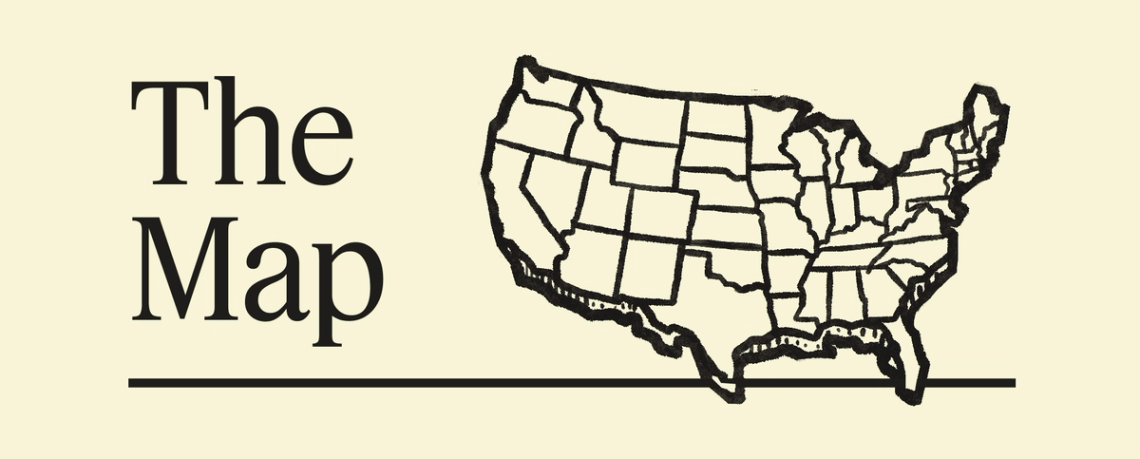 YouTube/Iowa Press YouTube/Iowa PressThe red wave Republicans dreamed about last month didn’t touch many swing states, but it transformed Iowa. Led by Gov. Kim Reynolds, who carried 95 of Iowa’s 99 counties, the GOP ousted Rep. Cindy Axne, defeated the longest-serving Democratic attorney general in the country, and retired a Democratic state treasurer who’d won his last race by 12 points. After Nov. 8, just one Democrat was left in statewide office: State Auditor Rob Sand. He secured a second term by fewer than 3000 votes out of nearly 1.2 million cast, after publishing a damaging audit of the governor’s COVID relief spending, and after she urged voters to replace him. This weekend, the Democratic National Committee is expected to push Iowa out of its spot at the start of the presidential primary calendar. Sand didn’t want to discuss that, but he had thoughts on why his party had done so badly in what used to be a swing state. AMERICANA: How soon did you know that this was going to be a rough Democratic year in Iowa? ROB SAND: Two big things were converging this year that guaranteed it would be tough. One of them was incumbency. This was the first cycle that two Republicans were running together at the top of the ticket as incumbents since 1992. And this was the first midterm for a Democratic president who’d lost Iowa in 60 years — you’d have to go back to Kennedy to find the last one. We weren’t even starting with a base of people who’d voted for the president. AMERICANA: The national party basically triaged the governor’s race and didn’t invest in the Senate race. Did that hurt you? ROB SAND: Those would be better questions for the folks at the top of the ticket. Obviously, I’m aware that the DSCC and the DGA didn’t target Iowa. But messaging matters. If you’re putting your dollars into contacting voters and running ads, it has an impact. AMERICANA: After your report on Reynolds and covid relief funds, you faced a lawsuit from a conservative group that accused you of probing her for political reasons. How did you win despite that? ROB SAND: There was a clear contrast for people between the establishment political smear campaign and the 30 Republican, conservative, and libertarian leaders that endorsed me. I think enough people saw through the flimsy attacks because there were a lot of people on the other side of the aisle who looked at the work that we were doing, and appreciated it. Kudos to them for being willing to say so. And the public records request lawsuit got dismissed before trial, a month or six weeks before the election. It was never credible. Look, we had had two requests from the DNC, which is the only time you’re going to hear me say those three letters in this interview. They said: Hey, we want all allegations of wrongdoing by Kim Reynolds and other Republicans in the state of Iowa. We gave them the same answer that we gave the conservative organization who wanted allegations of wrongdoing, which is: We can’t provide that kind of information because it can be used to ID whistleblowers. We’re required to keep it confidential. My choice was to hurt the office’s ability to be trusted by whistleblowers or to fight it and have my name dragged through the mud for a year. I went with the latter. AMERICANA: How did you build those ties with Republicans and libertarians? ROB SAND: I’d worked with a lot of Republican attorneys and Republican prosecutors around the state. And I’ve always been really willing to listen to anyone. When I was in college, I put together a class on conservatism, because I was interested in it — not because I was conservative, in the broader American political sense, but because I felt like I wasn’t hearing much about it as a part of my education. People contact me on social media and ask me to meet them, and I do, at a time when a lot of people are accustomed to being ignored or shoved aside. I’m also a big advocate for electoral reform. I think the two-party system is fundamentally broken. I personally prefer the idea of open primaries and then ranked choice or then review voting — you give every candidate between one and five out of five and the person who has the highest average is the winner. That would be a substantial improvement over what we’re doing now. AMERICANA: But why did Republicans do so well? ROB SAND: They continue to be effective at making Iowans scared of each other, utilizing fear to divide the state. That works great for them, even though it’s terrible for everybody else. In 2018, there was a young woman named Mollie Tibbetts who was killed by an undocumented immigrant shortly before the election. And even though her family literally asked them not to grandstand on that, they did anyway. That still makes me mad. Like, why weren’t they talking about my second cousin who was murdered by her husband? Why weren’t they up in arms when one of my high school classmates was murdered? They choose to get angry when there’s a political advantage to divide people on. AMERICANA: When that happens, how should Democrats respond to it? ROB SAND: Just call it what it is. Say that this is something that they’re trying to make you angry about to control you. Look at all the issues that are being magnified for partisan reasons. Look at the number of school board officials who are being screamed at by residents of their own town for things that don’t even happen in their school district, because national partisan interests are pushing the issue. It’s tearing the social fabric apart, but they do it anyway, and that tells you what their priority is. AMERICANA: What would you say to a Democrat who looks at the midterm results in Iowa and says, “Okay, wrap it up. That state’s North Dakota now, it’s not worth competing in.” ROB SAND: I’d hold them by their ears, look them deep in their eyes, and say that outside of Vermont, there was no other state in the country that elected one party at the top of the ticket by such a large margin and elected someone from the other another party statewide by a wider differential. Then, if you still want to give up on a state that is a national leader in split ticket voting, I didn’t speak slowly enough. | 






